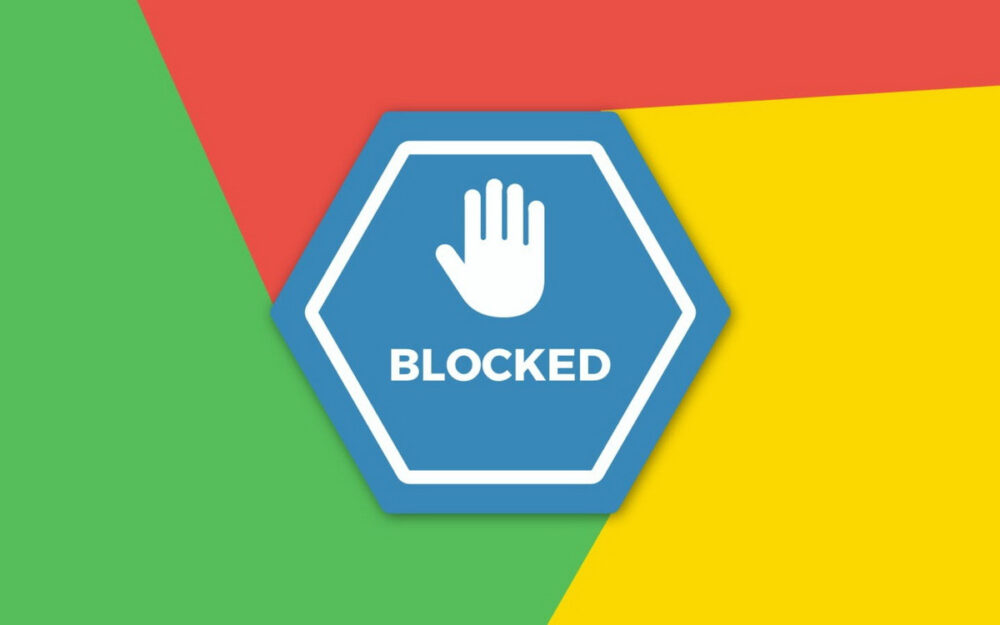Google to Slow Down Ad Blocker Updates with Manifest V3
Google is continuing its campaign against ad blockers. The company recently announced that the controversial Manifest V3, which sets new capabilities and restrictions for browser extensions, will be implemented in summer 2024. According to journalists, this change will not only create problems for many extensions but will also significantly slow down their updates.
Manifest V3 Rollout Timeline
In mid-November, Google developers stated that the long-delayed rollout of Manifest V3 and the discontinuation of older extensions will happen in June 2024. After the release of Chrome 127, Manifest V2 will be disabled for all pre-stable versions of Chrome (Beta, Dev, and Canary). Google said:
“Manifest V2 extensions will be automatically disabled in the browser, and it will no longer be possible to install Manifest V2 extensions from the Chrome Web Store.”
However, the exact timeline for the full transition has not been specified. Google notes that “at least a month will be needed to monitor and stabilize changes in pre-stable versions,” and only after that will the changes roll out to the stable branch of Chrome, “gradually over time.” The company emphasized that the exact timing “may change depending on collected data,” though it did not specify what data this refers to.
Corporate users with the ExtensionManifestV2Availability policy enabled will get an additional year of compatibility with Manifest V2.
Concerns Over Privacy and Functionality
Google has long claimed that Manifest V3 and its restrictions will help the browser save resources and better protect user privacy from extension developers. However, the company tends to downplay the fact that with “crippled” ad blockers, users will be more exposed to the rest of the internet—and to Google itself.
The main issue with Manifest V3, which the community has been discussing since 2018, is that it will seriously hinder the functionality of ad blockers, antivirus tools, parental controls, and various privacy protection products.
The Electronic Frontier Foundation (EFF) has called Manifest V3 “deceptive and dangerous,” stating that “Mv3 is unlikely to significantly improve [user] protection.” In a later article, EFF representatives also argued that Google’s claim of “lower resource consumption” does not hold up to scrutiny. Mozilla experts have reached similar conclusions.
Last year, the developers of the AdGuard ad blocker detailed the challenges of transitioning to Manifest V3. In short: the filtering rule limits are insufficient, the declarative rules syntax is highly restrictive, users can’t view filtering logs, and the new system causes performance issues.
Google’s Escalating Fight Against Ad Blockers
Recently, Google has stepped up its fight against ad blocking. YouTube is now doing everything possible to detect and block users of such extensions, and Google has announced a return to its plans to deploy Manifest V3.
Journalists at Engadget conducted a detailed analysis, noting that Manifest V3 will not only restrict extensions (without real user-focused justification) but will also create serious obstacles to timely updates, making it harder for developers to respond quickly to changes.
Currently, YouTube can instantly change its ad delivery system, but once Manifest V3 becomes mandatory, extension developers won’t be able to react as quickly. As Engadget puts it, if ad blocking is a cat-and-mouse game, Manifest V3 will force the “mouse” to slow down significantly.
Impact on Filter List Updates
Today, ad blockers and privacy apps can update their filter lists themselves, often using massive open-source lists maintained by the community. However, with Manifest V3, this will no longer be possible, as Google considers this “remotely hosted code” and prohibits it. As a result, any updates—including filter lists—will have to go through the full Chrome Web Store extension review process, inevitably causing delays.
Engadget spoke with several extension developers, who described the ongoing cat-and-mouse game with YouTube. Krzysztof Modras, Director of Product and Engineering at Ghostery, said:
“YouTube adapts its mechanisms more frequently than ever. To counter these changes in ad delivery and ad blocker detection, lists have to be updated at least daily, sometimes even more often. When everyone in this space is innovating, some ad blockers simply can’t keep up with the changes. With Manifest V3, Google will close the door to innovation in ad blocking and add another layer of control that will slow down blockers’ response to new ads and online tracking methods.”
Ghostery has a dedicated page warning that “nothing in Manifest V3 as it currently stands can help protect privacy,” and that the project is “simply hostile to users.”
Similarly, the uBlock Origin FAQ notes that “YouTube regularly changes its detection scripts,” and ad blocker users may be blocked for “short periods when [YouTube has changed] scripts but we haven’t updated our filters yet.”
Once Manifest V3 support becomes mandatory, such updates—which need to be released “at least daily”—will no longer be possible. Currently, it can take anywhere from several hours to three weeks for updates to be reviewed, and Google plans to significantly increase the workload for Chrome Web Store reviews, meaning delays could become even longer in the future.
Alternatives and Browser Responses
Firefox developers, who are forced to support Manifest V3 extensions due to Chrome’s popularity, have already stated that they do not plan to discontinue Manifest V2 support anytime soon. Firefox’s implementation of Manifest V3 does not include filtering restrictions, and Mozilla promises that users “can be confident that, despite these changes in Chrome’s extension architecture, Firefox’s implementation of Manifest V3 will ensure access to the most effective privacy tools, such as uBlock Origin and other content-blocking and privacy-preserving extensions.”
In 2022, Vivaldi browser developers also published a detailed post about Manifest V3, assuring users that they will do their best to overcome any restrictions Google implements in this version of the manifest.



